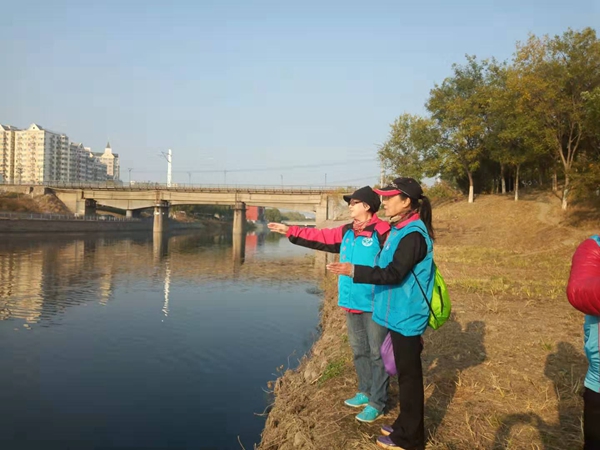They're stars in our eyes


He spends more than 500 yuan ($71) per month on delivery fees, with parcels weighing about 200 kilograms in total.
His constant efforts have influenced others as well, including several of his colleagues, to do the same thing.
Some of his regular customers will contact him, and he goes to their doorstep to collect clean clothes and put them in the delivery company's storehouse. When he has a certain amount, he will send them. He also shares the addresses of those who are in need with people who want to donate clothes.
"Many locals want to make their contribution, and some want to find a way to donate directly to those who are in need, rather than just put the clothes in an exclusive recycling box in the community," he says.
Another winner and "environment protection star" is Wang Tao, founder of Beijing Green Woodpecker Association, an NGO that promotes environmental protection.
"The public's awareness about ecological and environmental protection has improved greatly over the past decade. Some are also aware that they can report certain activities to the authorities to help improve our environment," says Wang.
Seeing the importance of facilitating such a mindset in youngsters, the NGO has organized various youth-focused events to encourage them to participate, such as teaching them about garbage classification.
It also arranges trips for children to visit an ecological reserve in the mountains and observe flora and fauna and plant vegetables to help them learn more about biodiversity.
In recent years, they have held over 200 lectures in schools, communities and corporations about ecological and environmental protection.
Beijing communities and restaurants have taken measures to sort waste since the city started mandatory rules on May 1 to reduce environmental pollution.
Wang says the NGO's earliest program about garbage classification can be traced back to 2012, when they encouraged community residents to do so by offering them daily necessities like food ingredients as a reward. People can also exchange their secondhand items with each other.
Their current project is training volunteers who are in charge of waste classification in communities, so that they can better guide residents how to sort their garbage. In each community, these volunteers are mostly senior citizens who have retired and they take turns to be on duty.
"It's important to educate all residents about the details of waste classification. For instance, in the hutong, Beijing's ancient network of alleyways, there are fewer property management companies, so it's much more dependent on the individual's consciousness."
Last year, the organization established 10 teams of 200 volunteers to take charge of supervising air pollution.
They would report to the authorities activities that were contributing to poor air quality, such as oil fumes, exhaust gas and flying dust. They also promote such knowledge through lectures and by putting up informative posters in communal areas of housing complexes.
Wang points out that the authorities have put waste sorting on the agenda, and the public is getting more serious on the matter, adding that NGOs can help by training more volunteers.




































